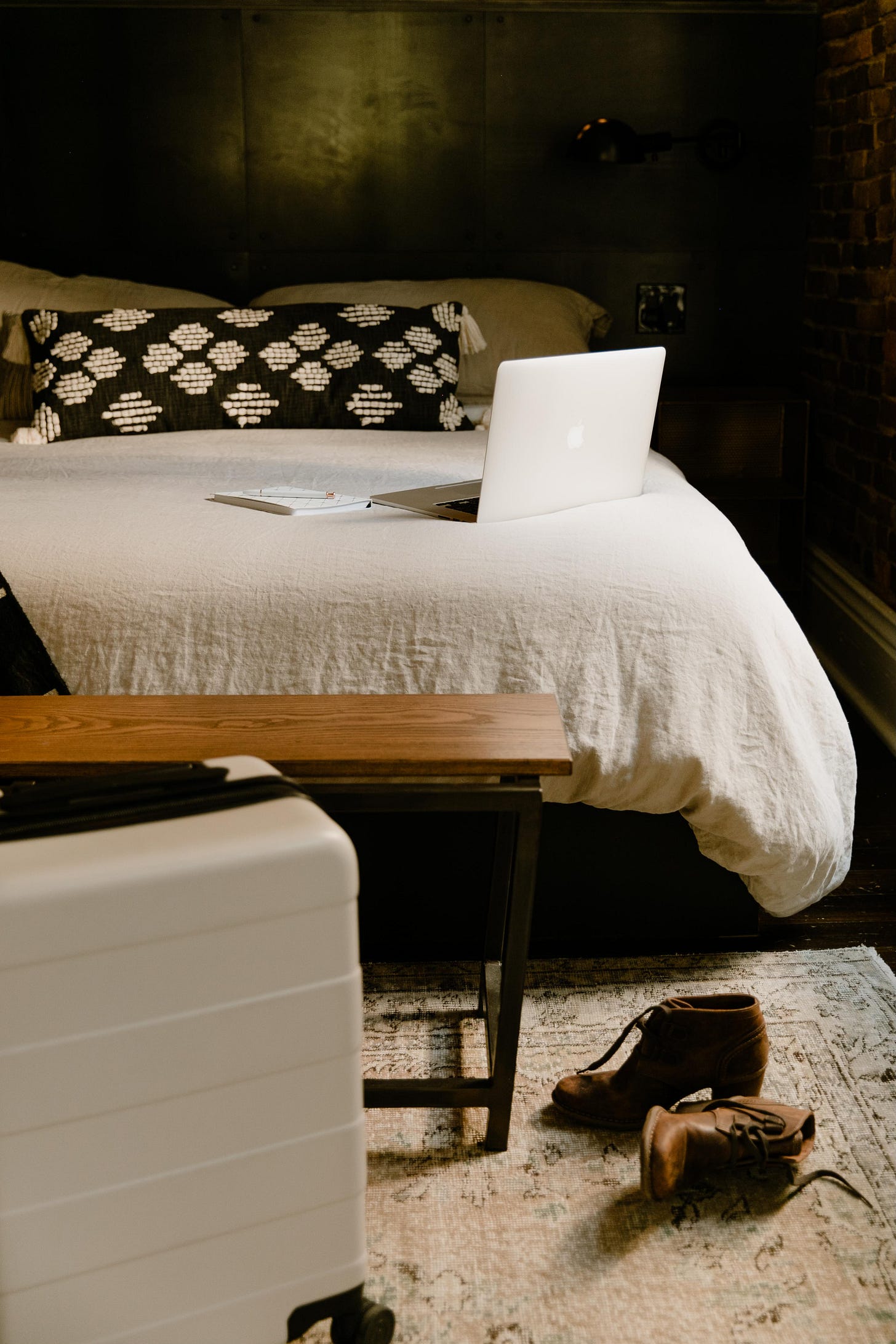Not Alone: What Cult Documentaries Revealed to Me as a Survivor of Abuse
Beyond voyeurism—the deeper reason we’re drawn to stories of abuse and manipulation
When The Rise and Fall of Mars Hill podcast first came out, some people accused listeners of voyeurism—we were enjoying hearing about the pain others had gone through and were reveling in the latest church gossip. Beth Lewis, writing for HuffPost UK on our culture’s current obsession with cult documentaries, says, “Our fascination with cults comes from the same place as our fascination with serial killers and true crime, we love to gawk at the extremes of humanity from a safe space behind a TV screen or page of a book and think, that could never happen to me.”1 It’s a chance to shake our heads and wonder how someone could not see so clearly what we see from the other side of the screen.
But I’d like to propose another reason why many of us flock to these exposé documentaries of cults, large-scale spiritual abuse, and the like: some of us need to know that we aren’t the only ones who were fooled by an abuser.
For weeks on end, I sat in bed each night watching serialized cult documentaries back-to-back. I thought about them all day long. I counted the hours until the kids went to bed so I could put on my pajamas, curl up under the sheets, and turn on the latest documentary. They held me, captivated. Stories and interviews that once terrified me and left my heart racing now helped me fall asleep at night.
How? I was five weeks out from reckoning with the truth that my husband had truly been an emotionally abusive man who had held me under his thumb for eight years, and these stories of manipulation, confusion, brainwashing, grooming, and abuse showed me that I was not losing my mind—or, if I was, at least I wasn’t alone.
During those early months, I spent every day trying to wrestle down truth like Jacob wrestled with God. Am I the victim or the oppressor? I heard my husband’s voice so calmly speaking to me, like a woman being brought to an insane asylum: Lara, honey . . . It’s you. You’re the abusive one. You’re the one who screams at the kids. You’re the one who manipulates and abuses me. You’re so delusional that you’re now projecting it all on me.
But I saw the holes in our walls. I saw the four little pin-marks where he stabbed a fork in the kitchen wall above my head. I had texts of him admitting to grabbing me by the arm. I had a letter from him admitting to knocking our three-year-old son into the window sill out of anger.
Oh God, what is true? Some days I was so certain I finally had it in my hands, but then it slipped away like an earthworm back into the mud. I started to think I must be insane. I called abuse hotlines once, if not twice, daily, to hear someone else tell my story back to me and assure me I wasn’t losing my mind.
Then I sat down to watch those documentaries. I saw men and women give their young children over to a man who claimed to be God incarnate, knowing they may never see them again. I listened to women sob about the twenty years they lost living in a closed community while the leader raped them weekly and how they still, to this day, struggled to believe that they were the victim and he was the oppressor. I saw that truth can be slippery for other people too and that abuse veils reality. I saw that just because one person, or even hundreds of people, refuse to believe you doesn’t mean that you are lying.
While some are watching and listening to these stories to shake their heads at the gulliabilty of others and revel in their own competency, the rest of us are listening to hear the unsaid words, “Me too. You are not alone. You are not stupid.”
“It is scary when you begin to think that the institutions, leaders and premises that define your life and way of thinking may be corrupt and illegitimate,” says Margaret Lyons, writer for the New York Times. “But maybe if you could watch, oh, hundreds of people in a variety of smaller contexts on every streaming platform and cable network go through that process, the path forward would become a little clearer. You would have some idea of where to head. You might feel less isolated.”2
These days, I lay my head down and breathe a little easier. The veil has nearly been lifted for me. But even if the veil remains longer than I’d like, I know it’s normal—and, one day, the veil will be lifted once and for all.
Beth Lewis, “Why Are We Suddenly All Obsessed With Cults?,” Huffington Post, October 6, 2023, accessed March 12, 2025, https://www.huffingtonpost.co.uk/entry/why-are-we-suddenly-all-obsessed-with-cults_uk_6481d381e4b04ee51a92f3ec.
Margaret Lyons, “Why We Can’t Get Enough of Cult Documentaries,” The New York Times, December 22, 2023, accessed March 12, 2025, https://www.nytimes.com/2023/12/22/arts/television/cult-documentaries.html.






You are not alone, Lara. Your story is more common than most people (especially most Christians) care to admit. Thank you for writing so openly about your experiences. Thank you for your courageous vulnerability. Thank you for breaking the silence. God bless you, my sweet friend.